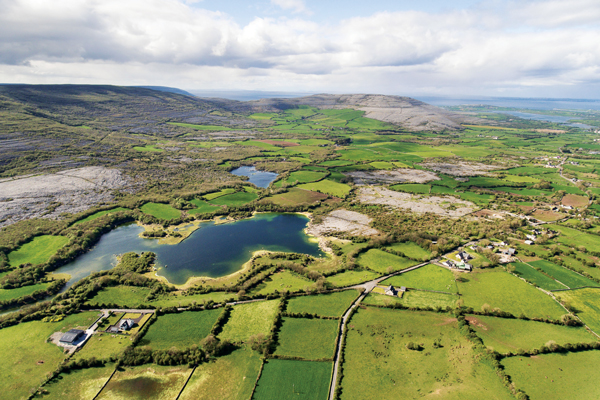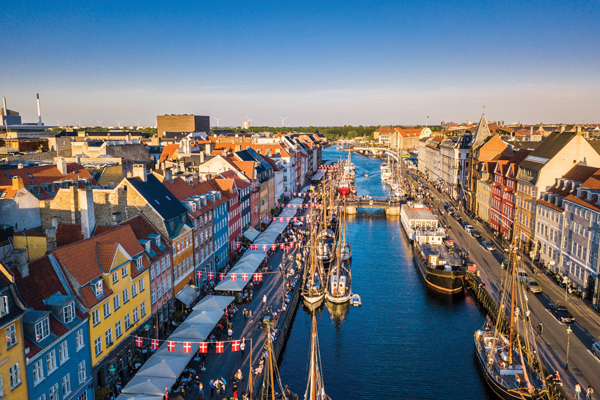Pensions systems across the world are under pressure due to increasing lifespans and other factors, but some nations continue to provide quality retirement benefits for their works, according to a new report.
The 11th annual Melbourne Mercer Global Pensions Index, released this week, studied 37 nations, representing about 63% of the world's population, and graded them on the quality of their pension systems using 40 data indicators.
The United States, however, wasn't among the top finishers.
The U.S. pension system got an overall grade of C+, placing 16th among all nations, just behind the U.K. and Hong Kong, and one place ahead of Malaysia. The report said the U.S. system would be better if it raised the minimum pension for low-income workers, increased mandatory contributions and reduced worker assets to funds before retirement, among other suggestions.
Researchers noted, however, that all nations in the report have room for improvement, with factors such as the low-growth and low-interest environment putting pressure on pensions systems all over the world.
The report noted, however, that the aging of the population is one of the top issues pension systems are dealing with.
"Pension systems around the world, including social security systems and private sector arrangements, are now under more pressure than ever before. Significant ageing of the population in many countries is a fact of life," David Knox, a senior partner at Mercer, wrote in the report.
The following nations all received grades of B or more and were, in ascending order, deemed by Mercer to have the world's best pension systems:
13. Germany
Germany got an overall B ratings for its pension system, but received only a D for the "sustainability" subcategory. That means researchers had doubts about the nation's ability to financially sustain what is now a high-quality system. The report recommended that Germany increase its level of funded contributions to increase asset levels over time.

12. Switzerland
The weakest aspect of the nation's pension system is its "adequacy," for which it received a grade of C. The subcategory, which comprises 40% of the overall grade, encompasses metrics such as benefits, system design, savings and tax support. The report recommended Switzerland introducing a requirement that part or retirement benefits must be taken as an income stream rather than a lump sum payment.

11. Ireland
The nation's pension system received an A grade for its adequacy, but a D for its sustainability. "Voluntary occupational pension schemes provide supplementary income in retirement but currently only cover about 50% of the working population," the report said.

10. Chile
Chile's pension system received a B for sustainability and a B+ for its integrity, which includes an assessment of the system's regulation and governance. The report recommended the nation increase the minimum level of support for the poorest participants and increasing retirement ages for both men and women.

9. Canada
The nation's lowest-graded subcategory was sustainability, for which it received a C. The report recommended increasing the coverage of employees in occupational pension schemes by creating an attractive product for those without an employer-sponsored plan.

8. New Zealand
In addition to a universal public pension, one of the key features of the nation's pension system is KiwiSaver, a voluntary plan with contributions from the government, employers and members. The report recommended that KiwiSaver contributions be increased.

7. Singapore
Singapore’s retirement income system is based on the Central Provident Fund (CPF), which covers all employed Singaporean residents. The report said the nation's overall grade would go up if it reduced the barriers to creating tax-approved group corporate retirement plans and opened CPF to non-residents.

6. Norway
Norway's system features a national social security system, mandatory occupational pension plans and a variety of voluntary programs. Researchers said the system could be improved by raising the nation's level of household saving and reducing the level of household debt.

5. Sweden
After being reformed in 1999, the nation's overall system is in transition from a pay-as-you-go system to a funded approach, the report said. Researchers said the system would be better if the nation raised retirement ages to better reflect increased life expectancy.

4. Finland
Finland’s retirement system is made up of a basic state pension and a variety of statutory earnings-related schemes. The nation should continuing to increase the minimum pension for low-income workers and raise the level of mandatory contributions, the report said.

3. Australia
The nation received a B+ for its overall pension system, which includes a universal pension system and mandatory employee defined-contribution plans. Researchers said the nation should "moderate the asset test on the means-tested age pension to increase the net replacement rate for average income earners."

2. Denmark
Denmark and with the the top-place finisher were the only nations among the 37 studied to receive A's for their overall pension systems. Denmark's sytem "comprises a public basic pension scheme, a means-tested supplementary pension benefit, a fully funded defined contribution scheme and mandatory occupational schemes," the report said.

1. Netherlands
The nation has a flat-rate public pension and a "quasi-mandatory earnings-related occupational pension linked to industrial agreements," the report said. Most employees belong to the occupational pension system, which are industry-wide defined-benefit plans. The nation still should reduce household debt, the report said.

The full report can be viewed here.








